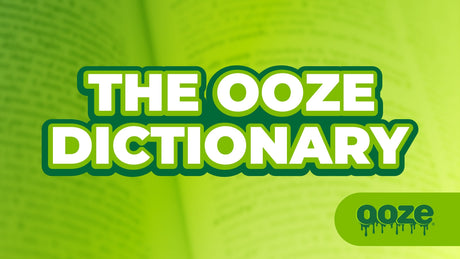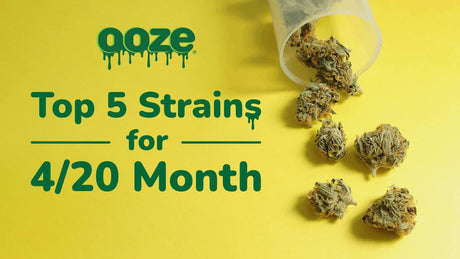What is hemp?
Hemp is a cannabis plant with less than 0.03% of THC—an undetectable amount of THC. The distinction between hemp and marijuana is mainly for legal reasons, making hemp federally legal, whereas cannabis is not. It’s completely non-psychoactive.
While it is used for some CBD products, hemp is mainly used for paper products, textiles, foods like hemp milk and oil, and even plastic. Fun fact: hemp is considered more sustainable for these types of goods because it grows faster than other plants typically used.
Hemp vs Marijuana
When you see a product labeled with “hemp seed oil,” “hemp oil,” or “hemp extract,” that means it came from the hemp plant, not the marijuana plant. Hemp and marijuana are the same species, but they are different varieties of cannabis sativa, which gives them distinctive qualities.
Legal hemp plants contain less than 0.03% THC, which on the other hand, is abundant in the cannabis plant. While hemp still contains tons of cannabinoids, it produces tiny amounts of THC. However, it does contain a substantial amount of CBD.
“CBD” and “hemp” tend to be used interchangeably, especially when it comes to products like skincare and food. CBD derived from hemp will be identical to CBD from marijuana, but that doesn’t mean CBD and hemp products will have the same effects on the body. This is because some hemp products will contain no CBD at all, just other cannabinoids.
The biggest difference between hemp and CBD is that the benefits of hemp come from the consumption or use of the actual plant (seeds and oil), whereas CBD is a chemical compound extracted from the plant.
Hemp vs CBD
While “hemp” and “CBD” are terms often used interchangeably, they actually refer to different aspects of the cannabis plant. Hemp is a type of cannabis plant known for its minimal THC content (less than 0.03%), making it non-psychoactive and suitable for a variety of uses beyond just CBD products. On the other hand, CBD, or cannabidiol, is a specific compound extracted from the flowers, leaves, and stalks of the hemp plant.
Hemp products can include a wide range of items, from hemp seed oil and hemp protein powder to textiles and paper. These products use the whole plant or its seeds, often without any CBD content. CBD products, however, are derived specifically to harness the therapeutic benefits of the CBD compound, which may include support for relaxation, sleep, or pain relief.
One of the biggest differences lies in the effects: CBD products are typically consumed for their potential health benefits due to the presence of cannabinoids, while hemp products are often used for their nutritional value and as sustainable alternatives to other raw materials. It’s important to note that while CBD extracted from hemp is chemically identical to CBD from marijuana, CBD and hemp products don’t always deliver the same benefits since some hemp products contain no CBD at all.
Understanding the difference between hemp and CBD helps clarify what to expect when using each type of product. While hemp is versatile and nutrient-rich, CBD is more focused on targeting wellness and balance through the body's endocannabinoid system.
What are hemp benefits?
Some of the healing benefits of hemp are the same as the cannabis plant, like the fact that it’s anti-inflammatory, but most benefits are nutrition-related, unlike CBD and THC. Hemp seeds are packed with protein, antioxidants, and fatty acids. This is why you can find hemp-derived protein powders and milk.
Hemp oil is also commonly found in many skincare products today because it is a non-comedogenic moisturizer, meaning it won’t clog pores or sit on top of the skin. Since it’s anti-inflammatory, it also soothes skin irritation and dermatitis. These benefits are similar to CBD extract, which is also commonly found in topical products.
The true definition of hemp has been hazy and mainly differentiated from cannabis for legal reasons, but it does have unique benefits of its own.
Different Ways to Consume Hemp
Hemp is incredibly versatile, offering a variety of ways for consumption, each with its unique benefits:
- Hemp Seeds & Protein Powder: Hemp seeds are packed with protein, healthy fats, and essential nutrients. They can be eaten raw, sprinkled over salads, blended into smoothies, or ground into hemp protein powder, making them a popular choice for those looking to boost their protein intake naturally.
- Hemp Oil: Extracted from the seeds of the hemp plant, hemp oil is rich in omega-3 and omega-6 fatty acids. It can be used as a dietary supplement, drizzled over dishes, or incorporated into salad dressings. Unlike CBD oil, hemp oil does not contain significant levels of cannabinoids but is known for its nutritional value.
- Hemp Flower: Hemp Flower: For those who prefer smoking or vaping, hemp flower is a great option. This natural form of hemp can be smoked or vaporized, offering a way to enjoy the full spectrum of cannabinoids without the high from THC. It provides a calming experience similar to CBD products. Pair it with our selection of dry herb vapes for a smooth and enjoyable session.
- Hemp-Infused Skincare: Hemp oil and hemp extract are often used in skincare products due to their moisturizing and anti-inflammatory properties. Applying hemp-based lotions or oils directly to the skin can help soothe dryness and irritation without clogging pores.
- Hemp-Infused Foods & Beverages: Hemp is making its way into the culinary world through products like hemp milk, energy bars, and even beer. These products incorporate hemp seeds or hemp oil, offering a way to enjoy the plant’s nutritional benefits in everyday food and drink.
The many ways to consume hemp from dietary supplements to skincare highlight its versatility and accessibility, making it easy to integrate into various aspects of daily life.





